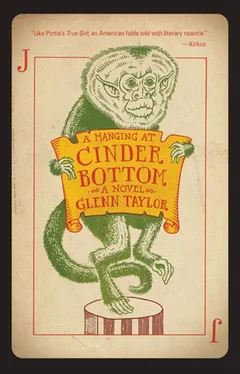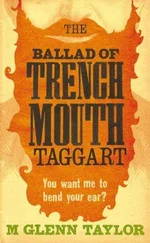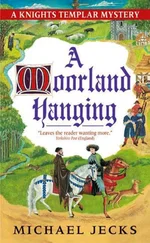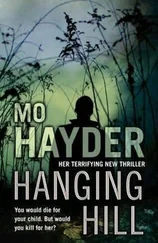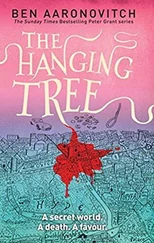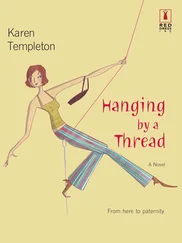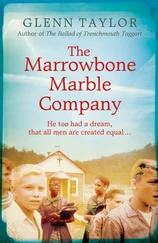Trent stifled a belch. “Presumably they know of me?”
“I gather they don’t.”
He grunted. “Why does he need you?”
“I gather he’s heard about my play.”
“Why does he think I’ll let you?” Forty-seven percent on a hundred grand was good money, but Trent had good money enough to wipe at his asscrack if he saw fit.
“The way Abe sees it, we can fleece the Chicago fella twice, once at Baaches, where I’ll appear to lose while Abe wins, then again when we steer him to the Oak Slab, confident against my play.” He had gotten his stride back.
A crane fly bumped at the lamp’s cast circle on the ceiling.
“And he wants a cut of the Oak Slab take?”
“No. Just wants to get his daddy’s saloon up and running again.”
Trent thought on it. “I don’t know,” he said. “Why does he believe we’ll do it?”
“He believes we’ll do it for the kind of certain money that comes in working the table with him as a partner. These men will think they’re lucky enough to play Keystone’s best, from way back and nowadays both, and they’ll think us enemies rather than cohorts.”
“Why doesn’t he just beat them without you?”
“I gather he can’t play like he used to. He’s lost what he had.”
Trent knew of at least three men who’d be interested to know such a thing. Rutherford and Harold Beavers and Taffy Reed had wanted a shot at the Keystone Kid for as long as he could remember. He watched the crane fly dance above him. He said, “He gave no indication of another angle?”
“He thinks he’s smarter than he is.” Now Little Donnie improvised. “I’d say the Jew blood in his veins taints his view on who aligns with who in this world. I could feel it. He wrongly assumes me his friend.”
It was quiet.
Trent considered the advantage of having the boy inside Abe’s domain. “Go on and do it then,” he said. “We’ll make something out of it.”
“He said he’d be glad to come upstairs and talk to you about it further.”
“Tell him in a day or two.”
And so it was that Little Donnie Staples would daily come to spend three dark morning hours with Abe and Goldie. They would teach him things such as how to covertly place tiny mirrors at strategic angles inside a man’s office. Between lessons, he would nap upright at a fake game of poker populated by salaried stage actors from Tony Thumbs’s Baltimore stall. The best of them, a fifty-five-year-old actor named Jim Fort, would play the role of Chicago Phil, millionaire. The diamond stickpins in their silk ties would be made of glass. They would speak one way in character and another alone. This facade they would all maintain in the event that Trent might finally show his face at Baach’s place, in the event that he might try and confirm the strange and intriguing tales told to him by the lazy-eyed son of a whore.
CYANOGEN GAS WILL IMPREGNATE THE ATMOSPHERE
May 18, 1910
The people stood in the middle of Wyoming Street and danced on loose legs and sprung knees. They drag-slid their feet, kicking dust into the cool night air. A man in a bow tie sat on a wicker-seated chair and played a guitar. Another stood and played potato bug mandolin. From an open turquoise suitcase, a woman sold single-dose pills for a dollar apiece. The suitcase was rigged with a leather belt around her neck, and she walked up and down the street’s center calling, “It’s not too late! Comet pills! Get your comet pills!”
It was four in the morning.
Inside, Sam Baach poured generous swallows from a squat-cylinder black-glass bottle. Comet drops, half dollar a shot. A miner still in his carbide cap paid and regarded the clear liquid. He knew of another man on his shift who’d stayed underground for the earth’s impending passage through the tail of Halley’s Comet. “What’s in it?” he asked.
“Oh, I’m not entirely sure,” Sam said. “Quinine, rum, purple wine. And there’s secret ingredients too that the doctor doesn’t tell of.” The doctor was the husband of the woman with the turquoise suitcase. He’d made a display of drinking down five shots of his own product and proclaiming, “No poison gas will ruin these pipes!” and was now asleep, face down on the crowded corner table. The miner looked over at him and said, “Well, here’s to living past sunup.” He drank it down and ordered another.
Abe was readying one of the performers Tony Thumbs had sent in from Baltimore, a Frenchman whom he hoped would please the crowd. A. L. Baach & Sons had not seen this many warm bodies since before he’d left town in ’03. Trent and Rutherford had left him well enough alone, all on the reports of Little Donnie and the promise of a New York telegram proclaiming the impending arrival of Max Mercurio and the Beautiful Beatrice. In the meantime, Abe had brought in some of Tony Thumbs’s choicest acts to populate the saloon, and more were on their way.
The stage itself had been finished the day before by Frank Dallara, who was paid handsomely. He made use of an oversize custom workbench in the storeroom, a great big bench made by his cousin and Jake Baach. Its tool well was quadruple deep. It had wide-throated shoulder and tail vises. On that workbench, Frank Dallara had now built, in two weeks, the rails, battens, grids, and drops of a proper performance stage, miniaturized. He’d been paid handsomely, and with a cut of his earnings, he’d paid the jailer at Matewan to feed Giuseppe something other than beans and bacon.
Goldie lit the footlights and stepped behind the curtain. She got on an upturned pail and brushed powder on the opening act’s face while he stared at the newspaper. He’d been asking, “What this word means” for twenty solid minutes, pointing at headlines and leadlines both. Goldie looked where he pointed. Cyanogen gas will impregnate the atmosphere . “Means poison,” she told him. “We’re passing through the comet’s tail right now.”
He frowned.
Abe stood by, watching. He cracked his knuckles and checked his watch.
Goldie made the opening act take another swallow from the brown glass bottle Tony Thumbs had sent along.
“I do not need it,” the man said.
“Can’t hurt,” she told him.
He swallowed and winced and looked again at the newspaper.
“Don’t worry,” Abe said. “It’s no truth in that headline.” The cyanogen-gas theory had been largely discounted, but Abe had paid an acquaintance at the McDowell Times to run the article three days straight in order that he might stir folks to buy comet pills and comet shots, in order that they would attend the saloon’s comet party. The acquaintance was Cheshire Whitt, whom Abe paid handsomely to print handbills reading You Can Sleep After You Are Dead. Come to A. L. Baach & Sons. Wednesday night into Thursday morning. Dance and drink and be entertained by world-renowned acts on our new stage .
The acts weren’t world-renowned as much as Baltimore-renowned, and the fame came less from stage time and more from habitual drunken exhibitionism.
Now the opening act was powdered and reassured that the world would not end before he took the stage. Goldie peeked her head through the curtain and whistled at Sam, who was having trouble keeping empty mugs filled. Sam in turn nodded to Cheshire Whitt, who opened the door and hollered at the people in the street that the show was starting inside.
It was shoulder to shoulder when Goldie stepped from the curtain. “Ladies and gentlemen,” she said, “direct from Paris France, I give you L’homme Péter.”
The crowd took this to mean that the man’s name was Peter. Had any of them spoken French, there may have been fair warning of what was to come.
Читать дальше
Конец ознакомительного отрывка
Купить книгу
